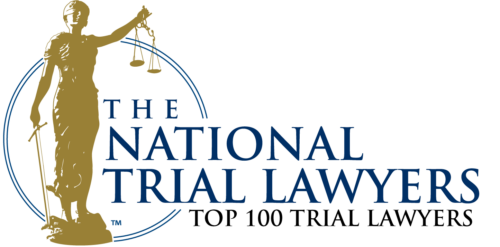Pennsylvania law requires you to maintain car and truck liability insurance coverage. See 75 Pa. Cons. Stat. § 1711. At a minimum, Pennsylvania law requires that all drivers pay for and maintain a liability insurance policy that provides coverage for up to $15,000 in damages per individual, and $30,000 to all individuals who are injured in a Pennsylvania motor vehicle accident See 75 Pa. Cons. Stat. § 1702. Additionally, Pennsylvania law requires vehicle owners to purchase at least $5,000 of “first party medical benefits.” These medical benefits cover your medical bills that are related to an injury or injuries that you sustain in a car or other motor vehicle accident. Your insurance company will be responsible for paying your medical bills regardless of who was at fault in a car accident that caused you to sustain an injury. See 75 Pa. Cons. Stat. § 1702. However, it is important to understand that these amounts are the coverage floors (minimums), and not the limits. Your decisions regarding automobile coverage options and elections can impact your recovery should you experience significant injuries following an accident. One key determination you will make is whether to opt for full tort insurance coverage or a limited tort option. Our Philadelphia personal injury lawyers go into more detail below.
What is the Limited Tort Car Insurance Option and What is its Effect on an Accident Claim?
Under a limited tort option, you and other household members covered under this policy may seek recovery for all medical and other out-of-pocket expenses, but not for pain and suffering or other non-monetary damages unless the injuries suffered fall within the definition of “serious injury” as set forth in the policy or unless one of several other exceptions noted in the policy applies. 75 Pa. Cons. Stat. § 1705(a)(1)(A).
A limited tort option allows an injured party who is not the primary cause of a motor vehicle accident to recover for:
- Unreimbursed economic losses from the party who causes the accident.
- Loss of income
- Property damage
Unreimbursed economic losses may include the costs incurred for reasonable and necessary medical treatment and rehabilitation services for injuries that are sustained in an automobile accident and are not covered by other insurance available to the injured party. 75 Pa. Cons. Stat. § 1705(a)(1)(A). Unreimbursed medical expenses may include co-pays, deductibles, and amounts owed out of a recovery for liens imposed by certain health providers. In addition, unreimbursed medical expenses can include dental treatment, rehabilitation, vocational therapy, medications, medical supplies, and even prosthetic devices. If a physician deems the injured person disabled and unable to perform his or her job responsibilities, the injured person may recover for:
- The wages lost from being out of work or
- The cost of paying another person to perform the injured person’s job responsibilities, if the injured person is self-employed.
In addition, if another person is at fault for causing your accident, you are entitled to be reimbursed for property damage including the cost of fixing or replacing your damaged vehicle. See 75 Pa. Cons. Stat. § 1705(d).
How is Limited Tort Insurance Coverage Different from Full Tort Insurance Coverage?
Full tort coverage is a form of insurance under which you maintain an unrestricted right for you and the members of your household to bring a lawsuit seek financial compensation for injuries caused by other drivers. Under this form of insurance, you and other covered household members may seek recovery for all medical and other out-of-pocket expenses and may also seek financial compensation for pain and suffering and other non-monetary damages as a result of injuries caused by other drivers.
The most significant difference between a full tort and limited tort insurance plan is found in the very text of the statute “financial compensation for pain and suffering and other non-monetary damages as a result of injuries caused by other drivers.“ Not only does the language allow drivers covered by a full tort policy to recover for pain and suffering, but it also allows these drivers to recover for additional damages like the loss of consortium, loss of life’s pleasures, and other non-economic losses.
Work with Philadelphia Personal Injury Lawyers After a Serious Accident
It is true that Pennsylvania drivers covered by a limited tort insurance policy do not share the same unlimited right to sue for non-economic damages. However, this does not mean that a driver who has elected a limited tort coverage is fully precluded from making claims for all non-economic losses. However, in order for a driver who has selected a limited tort option to recover non-economic losses they must be able to prove that they have suffered a serious injury or that a circumstance of their accident falls into a specific exception as explained above. See 75 Pa. Cons. Stat. § 1705(a)(1)(A). In a subsequent blog post we will explore some of the circumstances and situations where an insured with limited tort coverage will be exempted from limitations of his or her claim. Speak to a Philadelphia car accident lawyer to find out more if you’re seeking compensation for damages.
Related Posts
- Can You Sue if You Are Hit by an Uninsured Driver in Philadelphia?
- Are the Rides at Traveling Carnivals Dangerous?
- What to Do if Your Child Was Injured at a Daycare or Preschool in Pennsylvania
- Can You Sue for Unplowed Roads After a Car Accident in Pennsylvania?
- How Dangerous Are Accident Caused by Oil Tanker Trucks?















